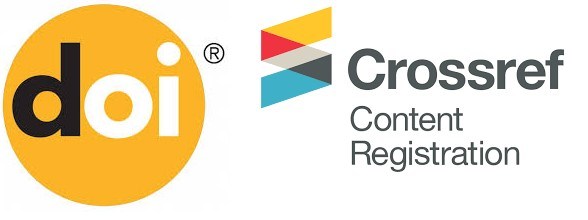Conditions for a non-alienating mathematical activity in fifth grade of primary education
DOI:
https://doi.org/10.46219/rechiem.v16i2.150Keywords:
Mathematical activity, Theory of objectification, Subjectivity, Community ethics, alienationAbstract
This article presents some theoretical and practical reflections on the conditions in classroom work with fifth-grade students, which enable non-alienating forms of social interaction. The study is qualitative, descriptive, and interpretive, and it was developed inspired by the theory of objectification, which assumes a multimodal perspective of human cognition. We work with 32 fifth-grade students (10-11 years old), analyzing their class mathematical activity when they solve two direct proportionality tasks. Based on the Vygotskian method, the data analysis considered a reflective and critical practice in three class episodes. The results suggest that the conditions in classroom work that enable non-alienating forms of social interaction compromise the positioning of a historical-cultural subject in a type of activity with a strong social sense of the students around a shared learning object (collective encounter of cultural knowledge about ratios, proportions and proportionality).
Downloads
References
Arzarello, F. (2006). Semiosis as a multimodal process. Revista Latinoamericana de Investigación En Matemática Educativa RELIME, Extraordin(9), 267-299.
Hegel, G. (2001). The philosophy of history. Batoche Books. (Original work published 1837).
Lasprilla, A., y León, O. (2020). Elementos de un método para el estudio de aspectos éticos en la educación matemática escolar inicial. RECME-Revista Colombiana de Matemática Educativa, 5(2), 129-139.
Lasprilla, A., Radford, L., y León, O. L. (2021). La labor conjunta en actividades de enseñanza-aprendizaje a partir del estudio de los vectores de la ética comunitaria. REMATEC, 16(39), 228-245. https://doi.org/10.37084/REMATEC.1980-3141.2021.n39.p228-245.id498
Lévinas, E. (2002). Totalidad e infinito: ensayo sobre la exterioridad (6.a ed.). Ediciones Sígueme.
Marx, K. (2015). Manuscritos económico-filosóficos de 1844 (Trad. M. Vedda, F. Aren y S. Rotemberg). Ediciones Colihue SRL.
Miranda, I., Radford, L., y Guzmán, J. (2007). Interpretación de gráficas cartesianas sobre el movimiento desde el punto de vista de la teoría de la objetivación. Educación Matemática, 19(3), 5-30. https://doi.org/10.24844/EM1903.01
Moreno, R. (2023). El pensamiento proporcional y la formación de subjetividades en el aula: Una aproximación al estado del arte. Revista Venezolana de Investigación En Educación Matemática, 3(3), e202313. https://doi.org/10.54541/reviem.v3i3.68
Pérez, J. (2023). Ludwig Feuerbach y el fin de la filosofía clásica alemana. Siglo XXI Editores.
Radford, L. (2010). Algebraic thinking from a cultural semiotic perspective. Research in Mathematics Education, 12(1), 1-19. https://doi.org/10.1080/14794800903569741
Radford, L. (2016a). Mathematics Education as a Matter of Labor. En M. A. Peters (Ed.). Encyclopedia of Educational Philosophy and Theory. Section: Mathematics education philosophy and theory (pp. 978-981). Springer. https://doi.org/10.1007/978-981-287-532-7_518-1
Radford, L. (2016b). On alienation in the mathematics classroom. International Journal of Educational Research, 79, 258-266. https://doi.org/10.1016/j.ijer.2016.04.001
Radford, L. (2017). Saber y conocimiento desde la perspectiva de la Teoría de la Objetivación. En B. D’Amore, y L. Radford (Eds.), Enseñanza y aprendizaje de las matemáticas: problemas semióticos, epistemológicos y prácticos (pp. 95-112). Doctorado Interinstitucional en Educación, DIE.
Radford, L. (2020a). El aprendizaje visto como saber y devenir: una mirada desde la teoría de la objetivación. REMATEC, 15(36), 27-42. https://doi.org/10.37084/REMATEC.1980-3141.2020.n16.p27-42.id306
Radford, L. (2020b). Play and the production of subjectivities in Preschool. En M. Carlsen, I. Erfjord, y P. Hundeland (Eds.), Mathematics education in the early years. Results from the POEM4 conference 2018 (pp. 43-60). Springer International Publishing. https://doi.org/10.1007/978-3-030-34776-5_3
Radford, L. (2021). Mathematics teaching and learning as an ethical event. La matematica e la sua didattica, 29(2), 185-198.
Radford, L. (2023). La teoría de la objetivación: Una perspectiva vygotskiana sobre saber y devenir en la enseñanza y el aprendizaje de las matemáticas. Universidad de los Andes.
Radford, L., y Sabena, C. (2015). The Question of Method in a Vygotskian Semiotic Approach. En A. Bikner-Ahsbahs, C. Knipping, y N. Presmeg (Eds.), Approaches to Qualitative Research in Mathematics Education (pp. 157-182). Springer. https://doi.org/10.1007/978-94-017-9181-6_7
Radford, L., y Silva, M. (2021). Ética: entre educación y filosofía. Universidad de los Andes.
Stetsenko, A., y Ho, P. C. G. (2015). The Serious Joy and the Joyful Work of Play: Children Becoming Agentive Actors in Co-Authoring Themselves and Their World Through Play. International Journal of Early Childhood, 47(2), 221-234. https://doi.org/10.1007/s13158-015-0141-1
Vergel, R., y Miranda, I. (2020). Editorial. Revista Colombiana de Matemática Educativa, 5(2), 1-13. http://ojs.asocolme.org/index.php/RECME/article/view/386
Yajot, O. (1969). Qué es el materialismo dialéctico (Trad. I. Mendieta). Editorial Progreso.
Zevenbergen, R. (1996). Constructivism as a liberal bourgeois discourse. Educational Studies in Mathematics, 31, 95-113. https://doi.org/10.1007/BF00143928
Downloads
Published
How to Cite
Issue
Section
License
Copyright (c) 2024 Chilean Journal of Mathematics Education

This work is licensed under a Creative Commons Attribution 4.0 International License.











